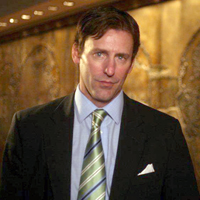History often casts its glow fickly. Sometimes we get a sense of how one will be reflected in its light contemporaneously. Sometimes it takes a little longer to sort things out.

In 1865, when an assassin’s bullet felled Abraham Lincoln, his loss was felt immediately and his place in the presidential pantheon all but assured. Though he had elicited withering criticism during the course of his four-year presidency, the sixteenth president had lived to see the Civil War to its bloody end, keeping the Union whole while putting a constitutional end to the odious institution of slavery. “It is small consolation that he died at a moment in the war when he could best be spared,” wrote Harper’s Weekly just after his death, “for no nation is ready for the loss of such a friend.”
It has taken history far longer to catch up to the legacy of our 36th president, Lyndon Johnson.
A hundred years after Lincoln’s passing, Johnson stood before Congress and delivered one of the great, unheralded speeches of its age, a plea before Congress to put the Voting Rights Act of 1965 into law. Though slavery had long been abolished at Lincoln’s hand, racism, virulent and intractable, continued to plague much of America. A year earlier, Johnson had signed the Civil Rights Act of 1964, the first meaningful civil rights bill since Reconstruction, striking down Jim Crow laws that allowed for racial segregation throughout the South. But the power of the ballot eluded many people of color in Southern states. In Mississippi alone, less than seven percent of the black population was registered to vote in 1962. “[I]t is all of us who must overcome the crippling legacy of bigotry and injustice,” Johnson said as he looked over his former Congressional colleagues in the House chamber, many of them unyielding segregationists, as his mouth tightened and his eyes narrowed determinedly. “And we shall overcome.”
Through what became known legendarily as “the Johnson Treatment”—wielding political capital, horse-trading, threatening, cajoling, flattering, whatever it took—Johnson got his Voting Rights Act. He considered the law his greatest legislative accomplishment. That’s saying something given that he also saw through Medicare, Medicaid, the Immigration Act, the Elementary and Secondary Education Act, the Higher Education Act, the Clean Air Act, the Wilderness Act, the Public Broadcasting Act, the Arts & Humanities Act and a spate of other landmark laws. One of his last great legislative achievements was passing the Fair Housing Act of 1968, putting on the books, along with the Civil Rights Act and Voting Rights Act, a triumvirate of civil rights legislation that put a legal end to racism that had for so long held back America’s promise.
It took Lyndon Johnson to finish what Abraham Lincoln had started.
Yet despite his titanic role in America’s quest for civil rights, the greatest domestic movement of the Twentieth Century, LBJ has been largely underappreciated—even ignored—until recently. While Lincoln won his war, vanquishing the Confederate Army, Johnson could never quite overcome the Communist insurgency in Vietnam. It was Ho Chi Minh who prevailed, not LBJ. While Johnson pursued the war as determinedly as he had the Voting Rights Act, it was a losing cause resulting in the nation’s division, demoralization and loss of 36,000 troops by the time he left office in 1969, after forgoing a run at reelection.
Now, forty-five later, Lyndon Johnson seems to finally be getting his due; history’s light is beginning to penetrate the shroud of Vietnam that has darkened his legacy. “I absolutely think the time has come,” said Doris Kearns Goodwin of reevaluating Johnson’s legacy in a front page New York Times story on Sunday. “When he left the office, the trial and tribulations of the war were so emotional that it was hard to see everything else he had done beyond Vietnam.” As the Time’s story reflected, Johnson’s public approval rating has climbed from 40 percent in 1990 to 55 percent last year, according to a CNN/OCR poll.
Bryan Cranston, coming off the singular triumph of rendering Walter White in Breaking Bad, has chosen to tread the boards as LBJ in Robert Schenkkan’s All the Way, premiering on Broadway next month, which portrays Johnson pressing inimitably for the Civil Rights Act. And in early April, the LBJ Presidential Library will host a Civil Rights Summit to mark the act’s fiftieth anniversary that will draw a host of luminaries including many aging heroes of Civil Rights movement and as many as four U.S. presidents. Moreover, LBJ is regularly upheld in the media as a president who got laws passed through Congress at a time when Washington sausage-making has all but ground to a halt.
“A tree is best measured when it’s down,” wrote Carl Sandburg in reference to the nation’s outpouring of appreciation for Lincoln after his untimely end. Though Johnson died over four decades ago, succumbing to heart failure at his beloved LBJ Ranch in 1973 at the age of 64, we are only now starting to get the true measure of the man.





